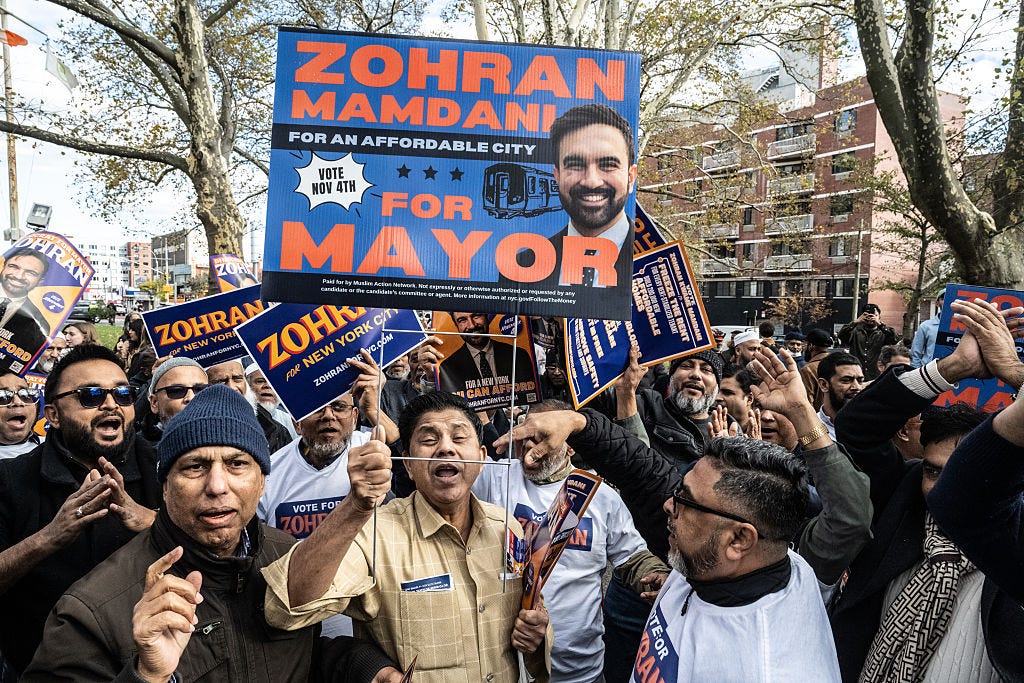Zohran's Media Challenge
Managing the Post, and everyone else
Recently, a furious New York Post—if the right-wing tabloid is not being cheeky, it usually furious—noted that Zohran Mamdani had refused a sit-down with their editorial board. “We invited all the mayoral candidates to sit down with the Editorial Board this year to share their vision for New York City and answer some questions; nearly all accepted, but Mamdani’s campaign blanked us,” the Post wrote. “We called them; we emailed. After the primary, one flack suggested it might happen . . . but his team never reached out with a clear offer, not even with conditions such as insisting the full transcript be open to the public.” During the Democratic primary, Mamdani, the 34-year-old democratic socialist assemblyman, also did not sit for an interview with the Post editorial board.
The Post has repeatedly savaged Mamdani in ways that have been both predictable and deeply personal. It’s rare, these days, when his visage isn’t on their front page and their columnists aren’t warning about his policies, his pro-Palestine views, or his Muslim faith bringing about the destruction of New York. Given how wrathful the Post coverage has been, it’s understandable that Mamdani would want to spurn their editorial board. Mamdani does still speak to the Post beat reporters, at least.
But dodging the editorial board is wrong. If Mamdani shuts out the Post for good, he will make the same mistake as Bill de Blasio, who saw his popularity plummet. Already, in his move to grant the New York Times increasingly exclusive access while keeping the Post at arm’s length, he is echoing de Blasio’s flawed media approach. I saw it all firsthand as a young City Hall reporter. De Blasio lost the war with the Post because he could not understand how the tabloid behaved—and why taming it mattered so much in New York, even with the rise of social media.



